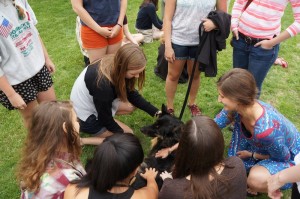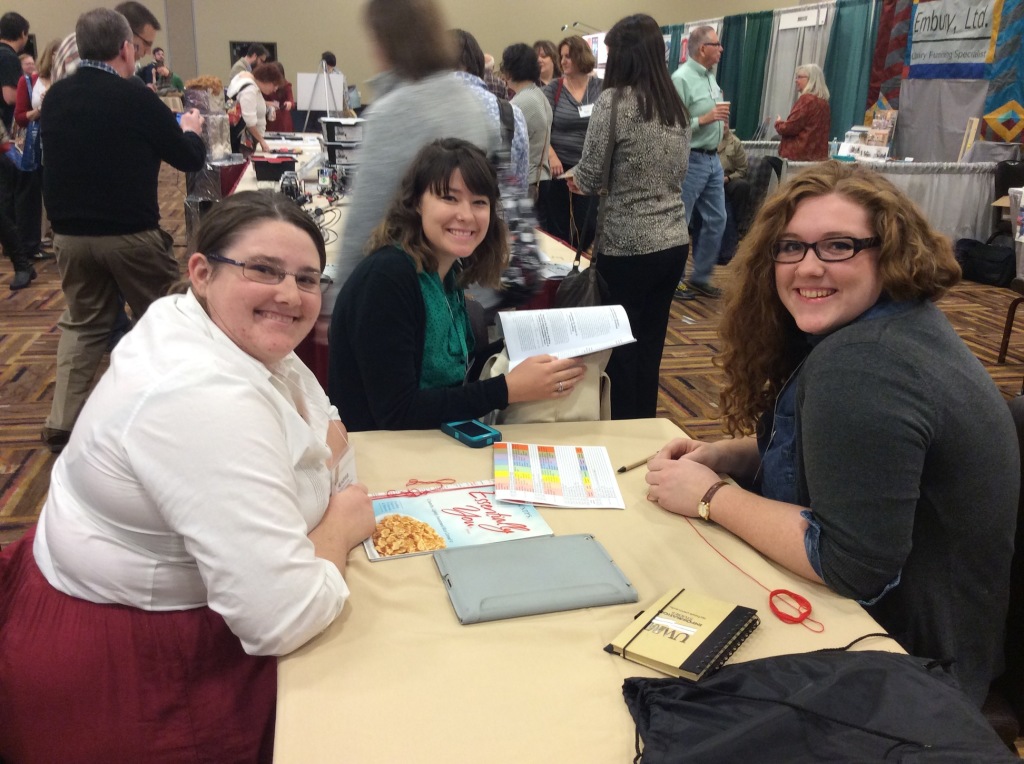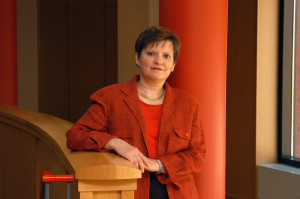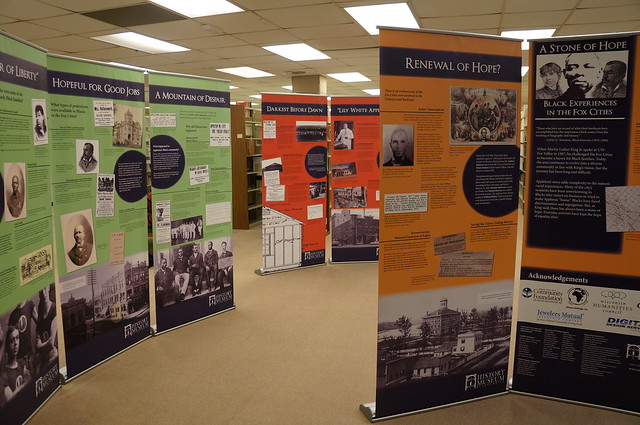Currently on display in the Mudd Gallery through October 13 is “Graduation” by senior studio art and environmental science major, Liam Hoy. Hoy’s ideas for the exhibition were influenced by the beginning of his final year in undergrad, and the uncertainty of the future post-graduation (thus the reason for the title of the show). The exhibit is comprised of original ceramic sculpture works from 2015. It features three large ceramic sculptures suspended on wooden spider legs, and a small crowd of porcelain figures. While trying to determine how to best represent the excitement and nervousness prompted by his senior year and the future, Hoy was inspired by spiders- “they seem scary at first, but if you stop to appreciate them, they do good things.” The crowd of small, curious people represent graduates, and the gallery walls are painted black to contrast with the white glazed ceramics and porcelain figures.
Be sure to stop by the Gallery on the third floor and spend some time with this wonderfully unique exhibit!












